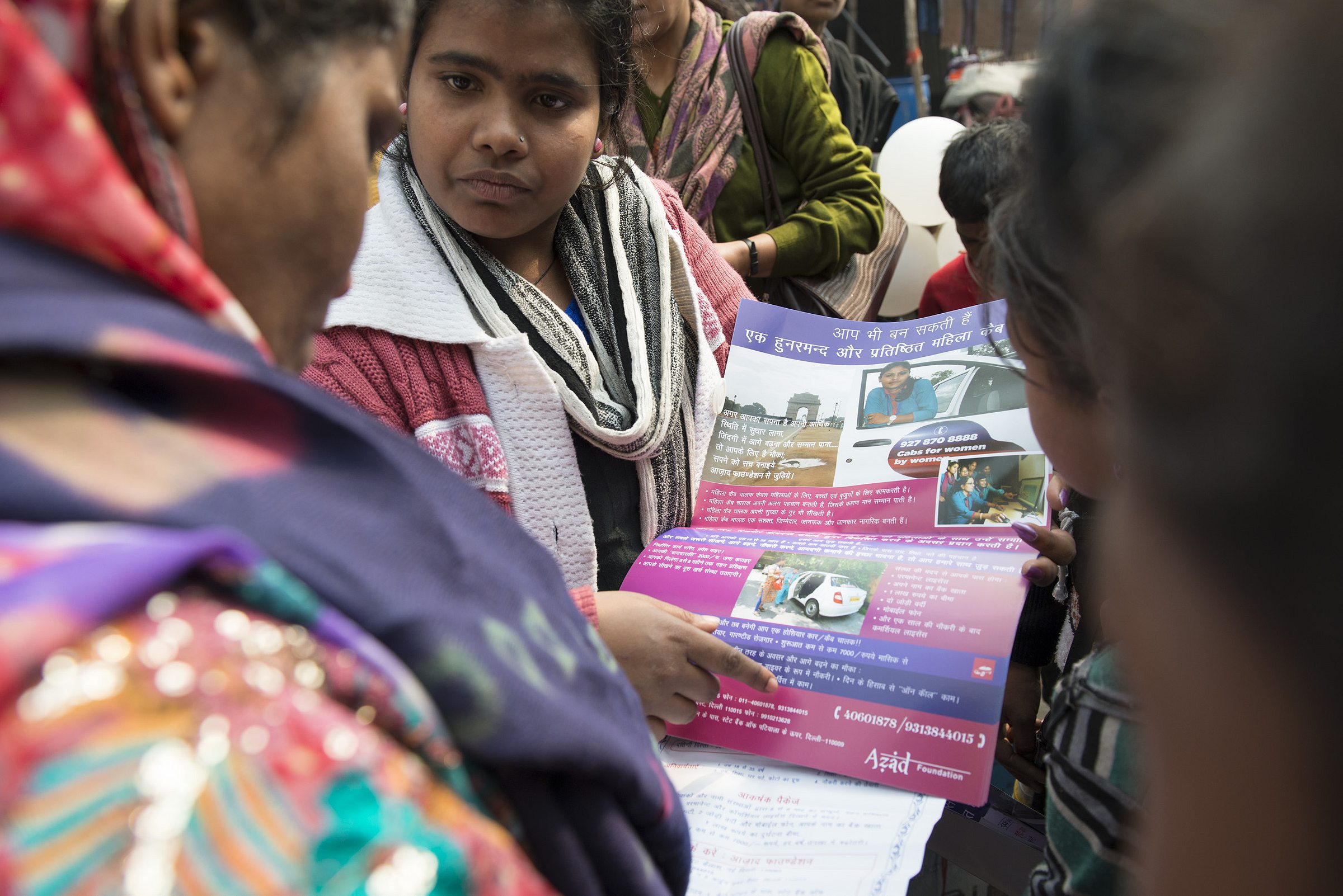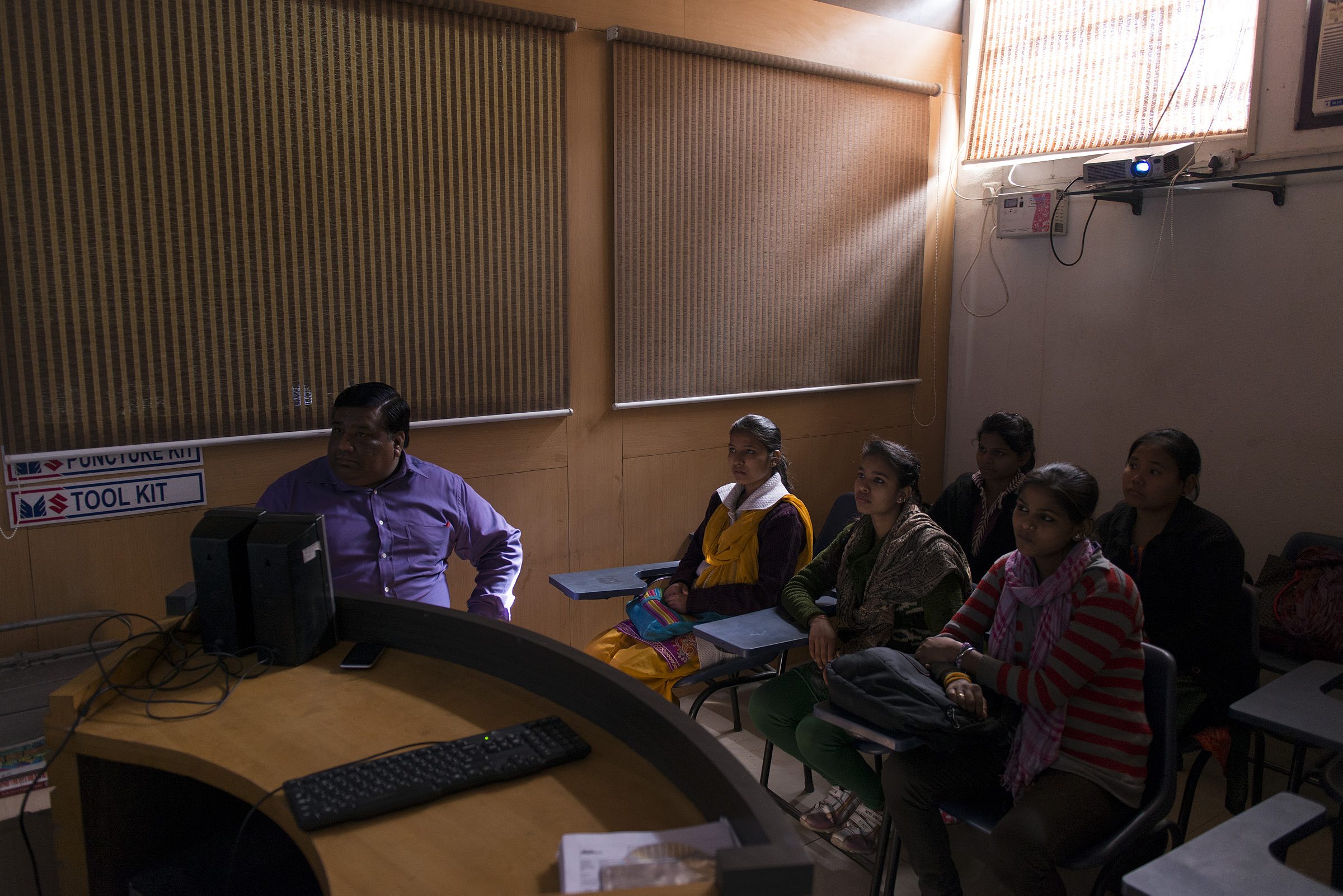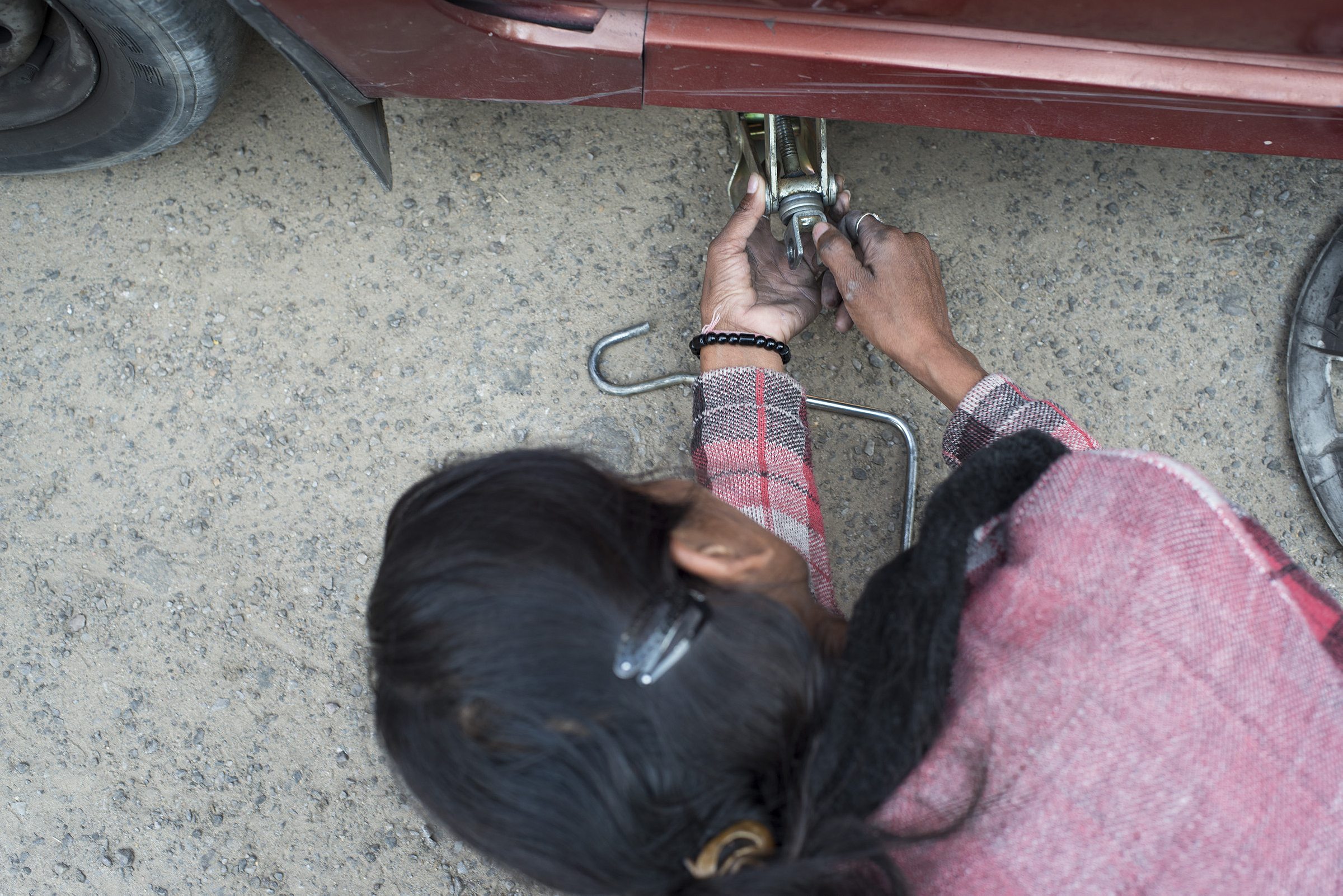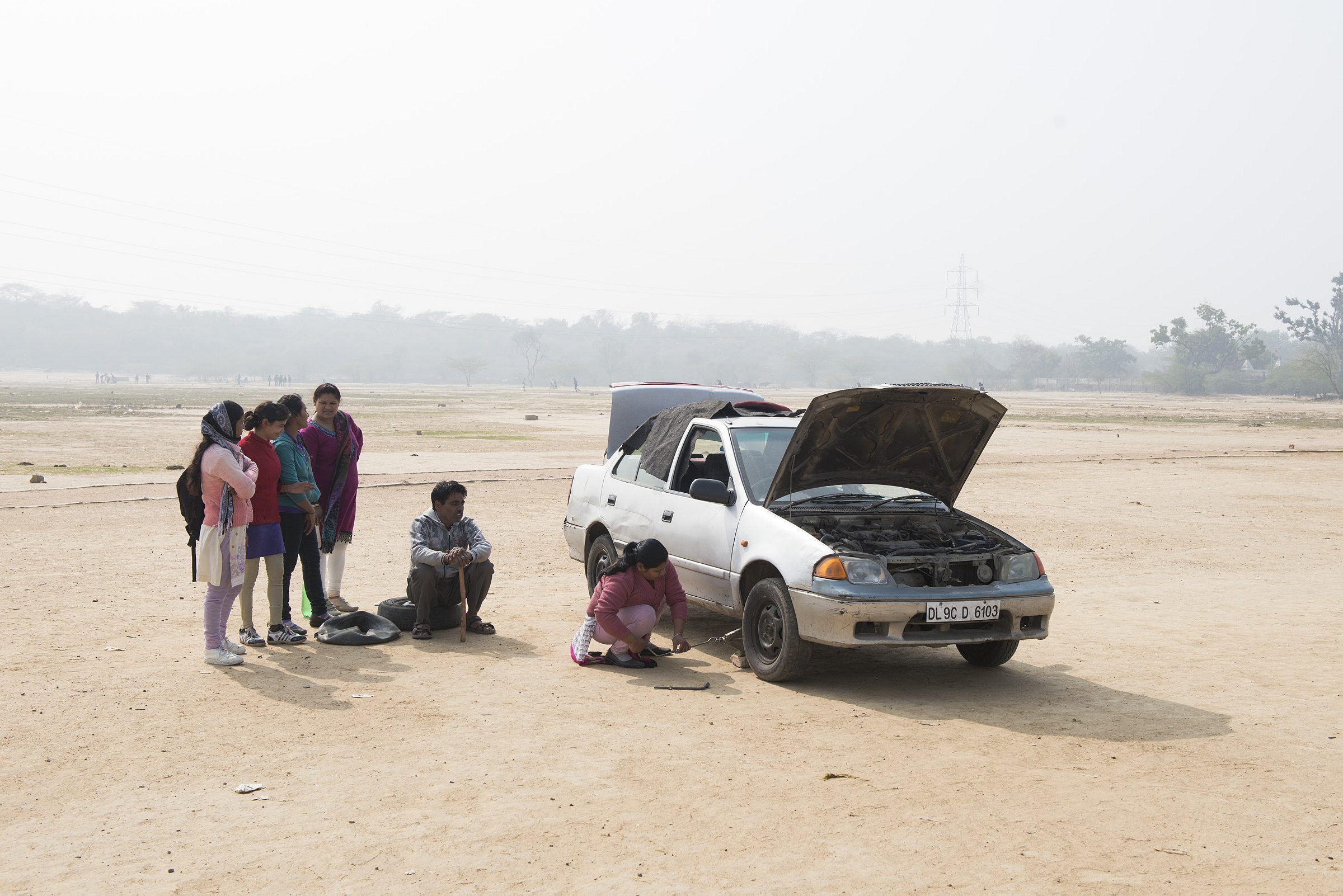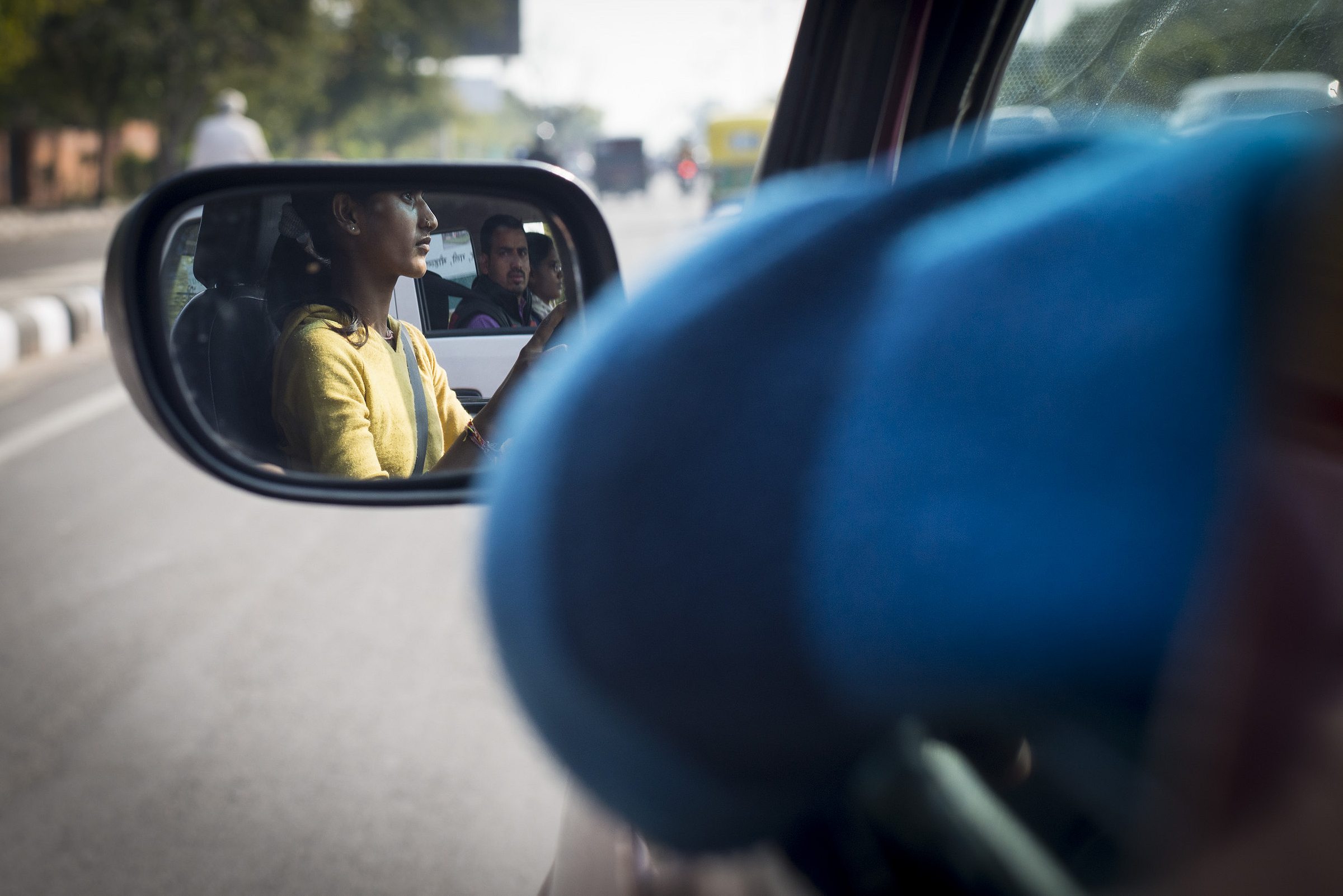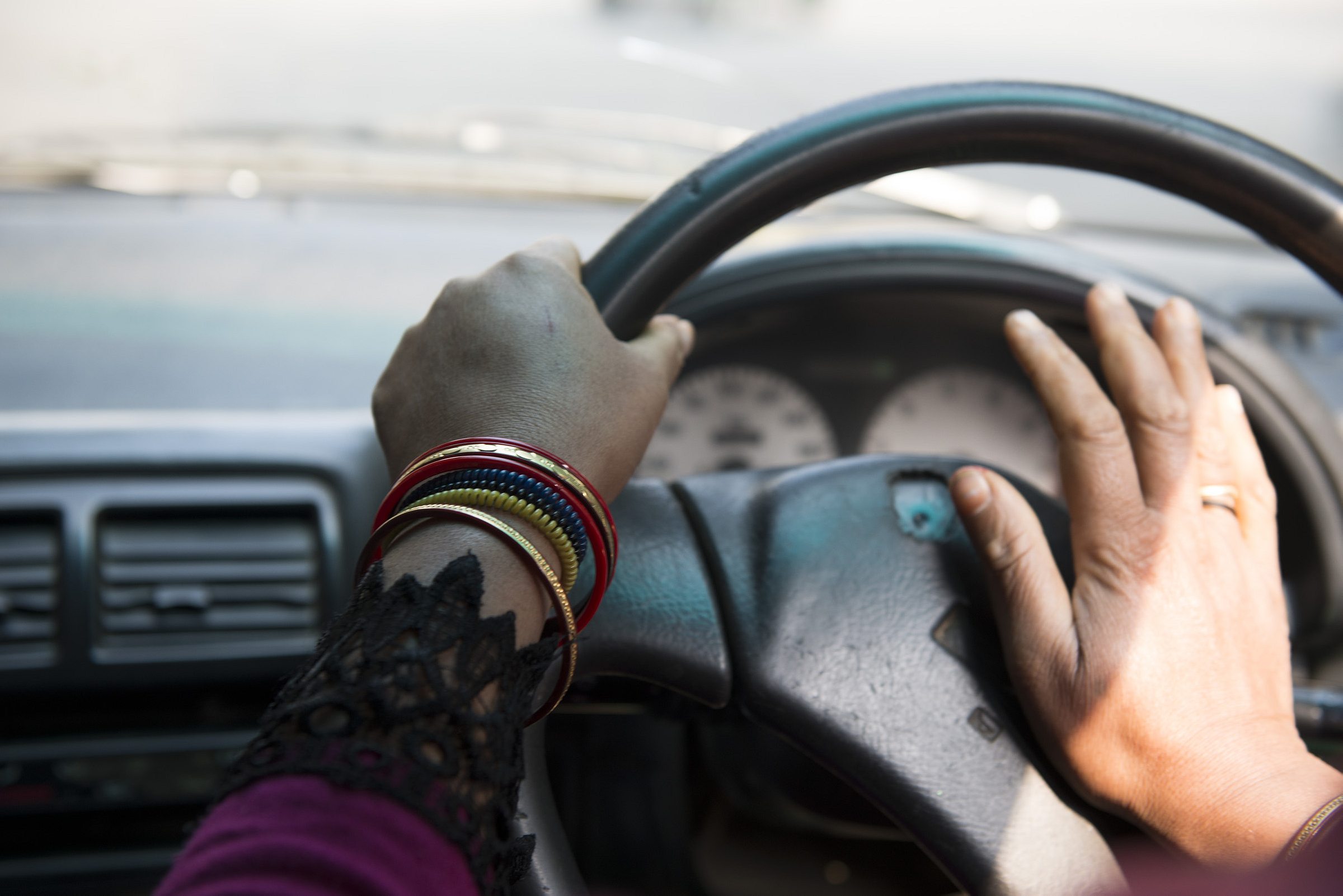More and more women are learning how to drive professionally in a country where they are often pressured into marrying young and staying at home.
JAIPUR, India—
“It is not God, nor the parents who can protect or keep a girl safe,” Meenu’s grandmother says during dinner at the family home in Jaipur, a city in the north of India. “The safety of a girl is with her confidence.”
Meenu had not turned 18 yet when her uncle tried to force her to drop out of school and marry a 30-year-old man. But the young woman had other plans. She had heard about a program called Women on Wheels that trains professional drivers throughout the country, and she had decided to join it.
Her biggest challenge was to convince her family. Her own mother was married at 11, and Meenu was raised by her grandmother while her mother worked as a housekeeper for wealthy families in Jaipur. Meenu grew up with very little, but she refused to let that dictate her future. Together with the Women on Wheels staff, she tried to explain what the program’s benefits could be. But it wasn’t until her uncle was told he would need to reimburse the program’s costs if she decided to quit that he conceded. A few months later, Meenu drove a car to her house for the first time.
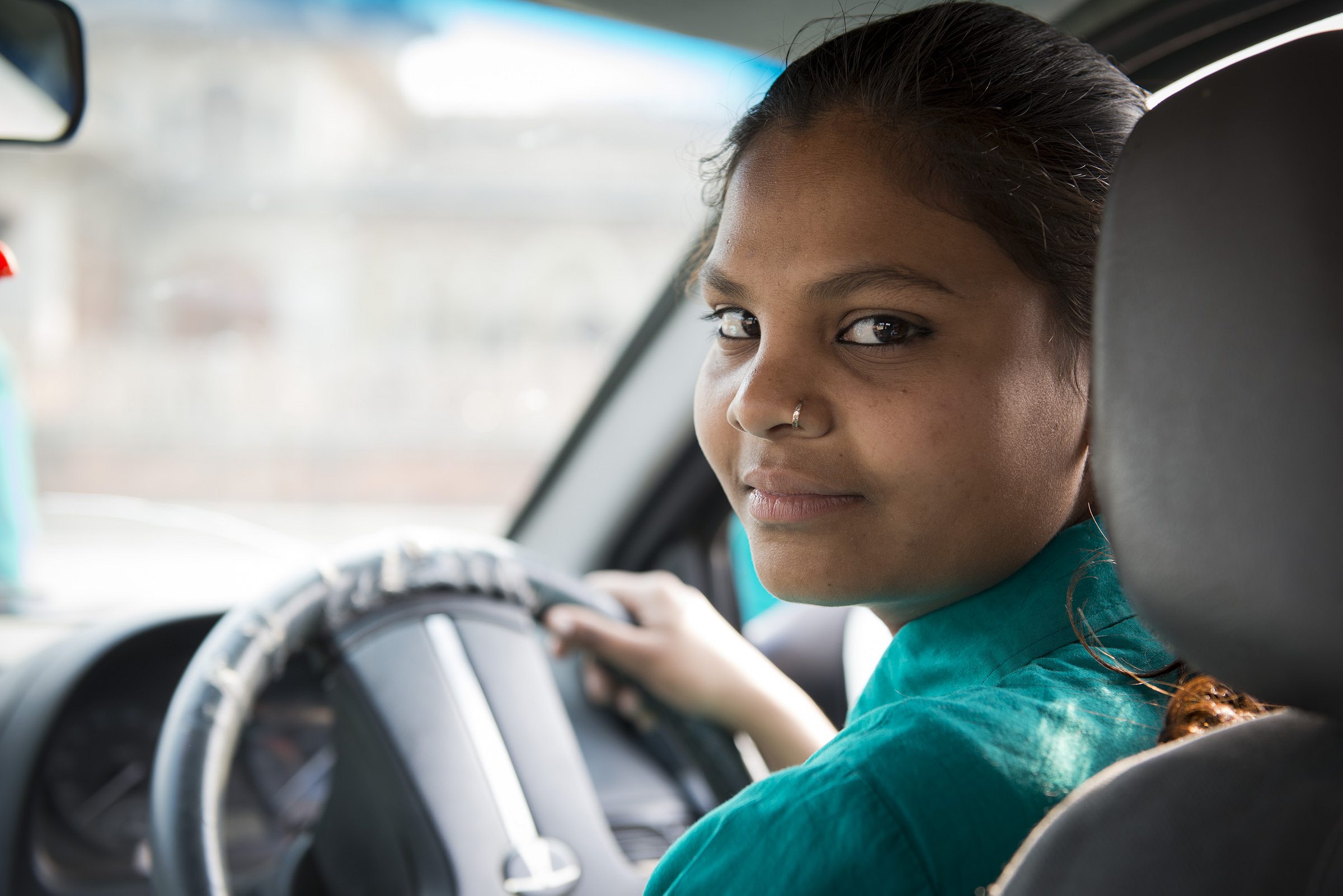
Professional driving remains a very male-dominated space in India. The director of Women on Wheels, Meenu Vadera, explains that in addition to providing dignified jobs to women with little prospects, the program also offers safe transportation around the city to women and families. Outreach is done in slums and targeted towards low-income women but the selection process is rigorous: those interested in participating are thoroughly interviewed to check if they have the necessary attitude and documents to enroll. Many women don’t tell their families of their decision to participate until well into the training, to avoid stigmatization or being forced to quit. Still, the dropout rates are high.
For those who do go through the course though, the payoff is huge. In addition to learning how to drive, the women are taught communication skills, English, and self-defense. “This training has boosted my self confidence,” says Meenu, who now works as a private chauffeur for a family. Thanks to her income, her family was able to build an extension to their house. And most of all, they are finally proud of what she’s achieved. “I am a changed person,” she says.
